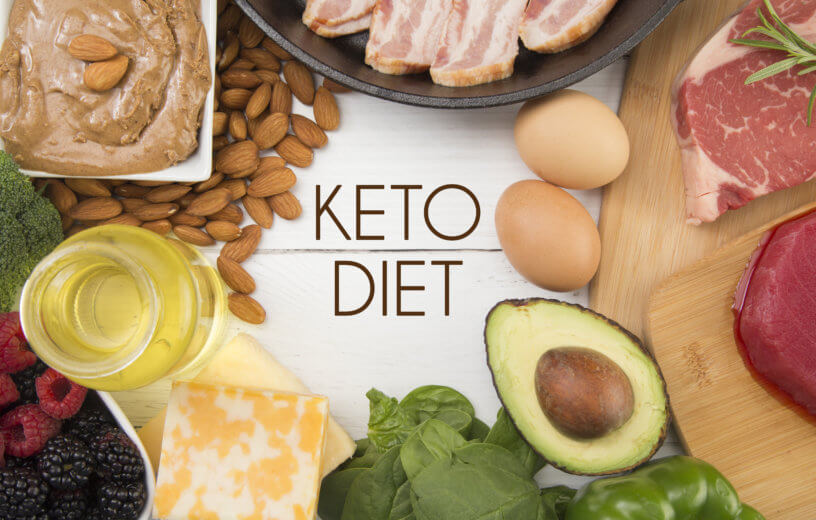Keto is one of the most popular dieting trends today. Celebrities, including the Kardashians, and non-celebrities alike have praised the diet for its potential weight loss and health benefits. While countless people follow a keto diet to watch their weight and have found great success with it, there are some things to keep in mind before hopping on the keto train, especially long-term.
What is the keto diet?
The keto (short for ketogenic) diet follows a high-fat, medium-protein, low-carb eating pattern. The diet started out in clinical practice in the 1920s for children with epilepsy. The goal of the diet is to reach an internal state of ketosis, which is when the body runs off of fat for energy instead of glucose.
Foods that people usually eat on this diet include meats, eggs, butters and cheeses, seafood, and perhaps some very low-carb vegetables. Everyone who eats this way does it a bit differently, but fruits, high-carb chips and snack foods/desserts, and starchy vegetables are off the table by definition for this diet.

What are the benefits of keto?
Most notably, weight loss is a commonly discussed benefit. Greater energy levels have also been shown to be an advantage to the keto diet. It may also still be used as a therapeutic diet for certain chronic diseases. Additionally, researchers have found that it confers greater appetite control, allowing people to get a tighter grasp on their hunger and fullness cues.
Keto is rich in fat and protein, which are two filling macronutrients that increase meal satiety. Triglyceride levels have also been shown to drop on this diet, given that elevated levels of it are generally related to high carbohydrate intake.
Possible drawbacks
When you see someone post their 50-pound weight loss by eating keto on Facebook, it could be hard to picture how anything could be wrong with the diet. While many people see benefits, there can be side-effects of altering the metabolic processes in your body. Additionally, the diet may not be sustainable long-term, considering its restrictive nature.
Here’s some things to consider:
- Keto may raise LDL (“bad”) cholesterol, since the diet is often high in saturated fats from the abundance of meat.
- “Keto flu”: During the initial weeks of eating keto, some people don’t feel well and often report constipation, headaches, or fatigue. Keeping up with electrolytes and hydration can help with this.
- Your relationship with food may worsen: Any diet that is highly restrictive can come at a cost of changing your relationship with food, giving you an “all or nothing” mentality. Most people choose to go keto with health solely in mind, but this can go down a slippery slope that makes you no longer see that food can bring people together, maintain traditions and culture, and help you create memories through experiences. It’s important to remember that if you eat one meal with family that isn’t perfectly keto, it won’t be the end of your dieting journey.
- You may become more constipated without consuming much fiber, which is found in fruits, vegetables, and whole grains.
Bottom Line
Before making drastic diet changes that severely reduce or exclude certain food groups like going keto or vegan, it’s important to talk to your doctor and dietitian to make sure it is right for you. Keto has shown lots of promise as a therapeutic diet intervention, but there are certain drawbacks to consider, especially if you are planning to eat this way for the long haul.
You might also be interested in:
- Keto diets could double the risk of suffering heart problems
- Keto diet may help starve cancerous brain tumors
- Eat better, live longer? Scientists uncover link between eating protein and aging

